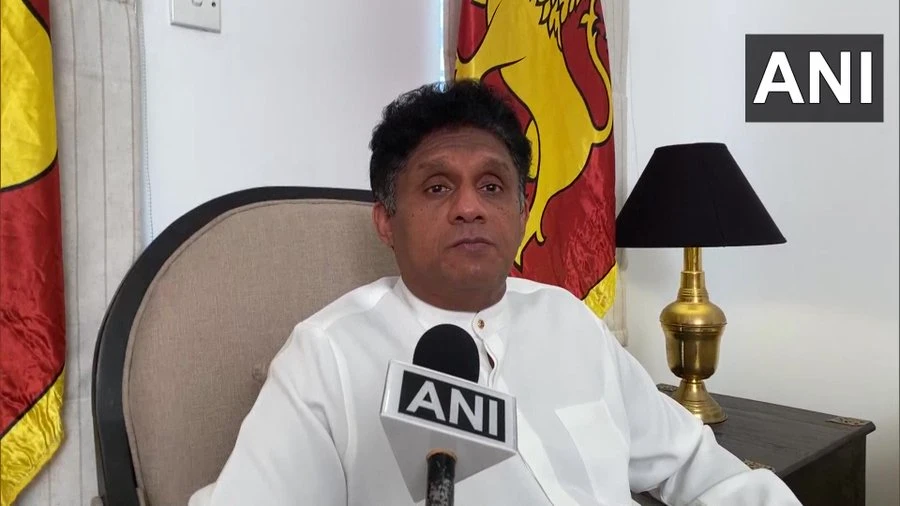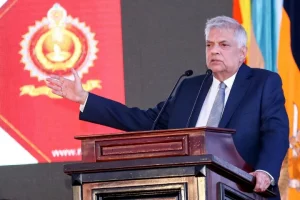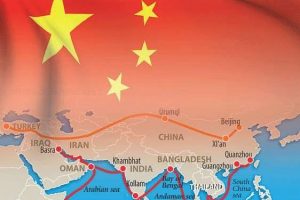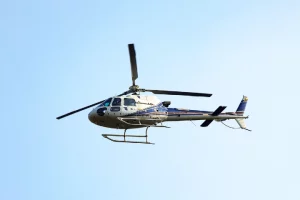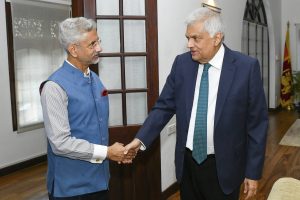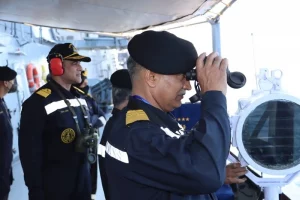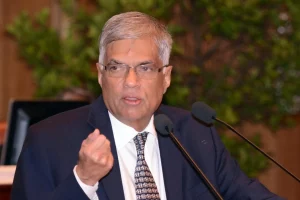Dismissing the possibility of a no-confidence motion like Pakistan to oust the present government in Sri Lanka, Leader of the Opposition Sajith Premadasa said that they will use their Constitutional provisions to change the government. Speaking to ANI, the Opposition leader said, "Pakistan has its own method of conducting democratic politics while we have our own Constitutional provisions and we will not be following anything else other than the Constitution of our country."
Premadasa further said, "we have homegrown problems and we need a homegrown solution. We will represent hundreds of thousands of citizens and will have an organic uprising but will ensure that this will be a peaceful uprising. We'll use all methods available through constitutional procedures to achieve the expectations of the people."
Reacting to the former Prime Minister Ranil Wickremesinghe's statement over the huge bilateral loans that Sri Lanka has to pay, Premadasa said that the country has not only taken bilateral loans but also taken multilateral loans from various international monetary markets and also have ISBN. He said, " We need to pay the loan in the month of April. Our composition of tet is multifaceted. So we need to adopt certain procedures but first and foremost we need an orderly process."
He said that their proposals for the inclusion of financial experts in the government were accepted within 24 hours. He further stated that if the government follows the roadmap and if the initiative was taken timely and the process will be fast track then Sri Lanka can survive as a country.
Premadasa urged the world to help Sri Lanka in such a situation. He said, " As a responsible citizen, my appeal to all leaders, to everyone in the international community, financial institution and political organisation to help Sri Lanka to the maximum possible extent."
Meanwhile, in Colombo, Sri Lankans continue to protest against the government as the country faces an economic crisis. "This protest will not end until this govt is brought down. We will stay here for months, years. It's not about a single-family but the entire corrupt system," says a protester.
Earlier, on April 9, Sri Lanka's main opposition party Samagi Jana Balwegya announced that it will move a no-confidence motion against President Gotabaya Rajapaksha if it fails to provide immediate relief to the people of the island nation adversely impacting the economic crisis.
Opposition leader Sajith Premadasa had earlier said that Sri Lanka must abolish the all-powerful Executive Presidency and strengthen Parliament without paving the way to a similarly dictatorial premiership while ensuring adequate checks and balances.
"For nearly 20 years every leader promised to abolish the Executive Presidency but only strengthened it," Premadasa said in a strongly-worded speech in parliament on Tuesday reminding the Parliamentarians about the necessity to introduce a new electoral system.
It is pertinent to mention that since the introduction of the presidential system in 1978, every election which ensued was fought on the promise to abolish the presidency. However, once elected all presidents chose to ignore the election promise.
Meanwhile, Sri Lankan citizens continue to protest against the current government across the country and have raised demands to sack the President and Prime Minister.
Sri Lanka is battling a severe economic crisis with food and fuel scarcity affecting a large number of the people in the island nation. The economy has been in a free-fall since the onset of the COVID-19 pandemic.
Sri Lanka is also facing a foreign exchange shortage, which has, incidentally, affected its capacity to import food and fuel, leading to the power cuts in the country. The shortage of essential goods forced Sri Lanka to seek assistance from friendly countries.
Read More:
Is Rajapaksa waiting for loans to placate people and stave off challenges to power?
How the Rajapaksas have become the face of the national crisis in parliament and on streets
Sri Lanka crisis: Should India take the Afghan humanitarian model to support the people?
With food crisis ballooning, Rajapaksa family in Sri Lanka faces its moment of truth






